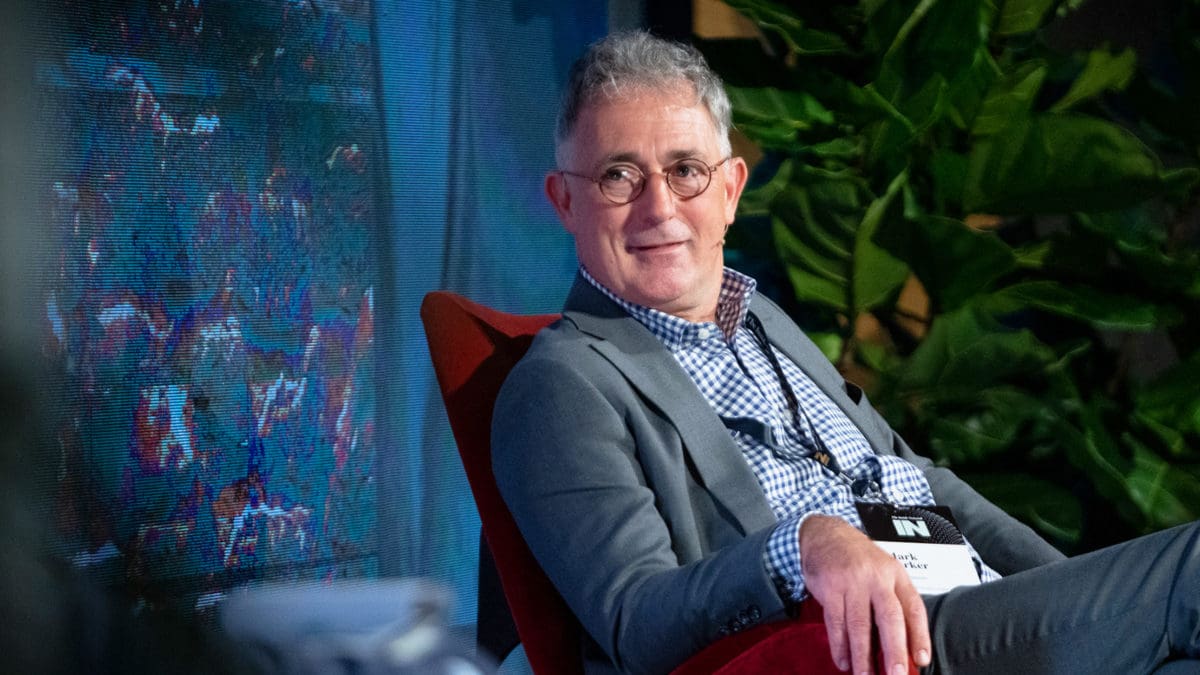‘Hold your view lightly’: GQG on Russia, ESG
“In investing, the most important thing to recognize is that you’re probably wrong in anything which you believe,” Mark Barker, head of international at GQG Partners, told the Inside Network’s Equities and Growth Symposium. “Have a view, but hold your view lightly.”
Case in point: Russia’s invasion of Ukraine. GQG took its EM exposure from around 15 per cent at the beginning of the year to about three and a half per cent by the day of the invasion, but still didn’t think Putin would actually go through with it – along with most of the rest of the world, and large swathes of the intelligence community. They certainly didn’t think that Putin would sanction them right back by imposing restrictions on local brokers to prevent the sale of assets on behalf of international investors and shuttering the Moscow Stock Exchange. But “you live and learn.”
“We thought (Putin’s) got more to gain by not invading than invading,” Barker said. “We also said that if he does invade there are certain businesses that the West can sanction – banks, and the like – and that there are certain businesses they can’t afford to sanction – energy companies, which account for 12 per cent of the energy supply.”
Super funds were in local focus during the rapid global divestment of Russian assets, with then-Treasurer Josh Frydenberg saying it was the Morrison Government’s “strong expectation” that they dump them ASAP. That divestment also saw a widespread repudiation of the ESG principles espoused by institutional investors, with NYU professor Aswath Damadoran saying ESG “was a feel-good scam.”
“If you are an emerging market investor, you can’t really do that without saying “I’m being paid to take certain degrees of sovereign governance risk. That’s why I’m there”. There’s a little bit of holding your nose that is required for that,” Barker said.
“You don’t want to confuse an ESG investor with an impact investor. An impact investor is one who’s always trying to make the world better. A good ESG investor is one who tries to identify what those non-financial risks are, and then decide whether or not they’re prepared to underwrite them.”
GQG, like other investors, is a supporter of the transition to a low carbon economy, but Barker is concerned about the “blunt approach” the market has taken to it in effectively denying capital to energy companies, cutting supply rather than demand and “therefore sleepwalking into an energy crisis.” The uncomfortable outcome of that is that the transition will likely be delayed due to the energy intensity of that transition.
“The market is right most of the time,” Barker said. “I think the ESG situation is an interesting one in that when you have a large swathe of investors making non-economically driven decisions, you are likely to create perverse outcomes. You’re certainly likely to create a valuation mismatch and ultimately an arbitrage opportunity.”
GQG’s at-the-time contrarian move to reduce its exposure to tech stocks through 2021 has likely now paid off for the fund manager, which saw a dip in performance as a result of the underweight as tech-heavy benchmarks continued to surge despite a gloomy outlook for speculative growth. But Barker believes investors wouldn’t “have to be the most diligent student of financial history to know that nothing grows forever.”
“I think we went through a period over the last two or three years where if you wanted to beat the benchmark – and I’m thinking particularly about the US benchmark – you basically had to be valuation agnostic,” Barker said. “If you cared about valuations, you were going to underperform. That’s a tough environment. But I think it became pretty clear to us that the inflation threat was becoming more significant in that it was going to be stickier and higher for longer.”
“We don’t really believe in forecasting, but you’ve got to think about the upside and downside for this. Any of these businesses with high valuations, you were carrying pretty horrible duration risk. And so you’ve just got to think that this has potential to lead to a regime change, and now you’ve got to figure out how to navigate that regime change.”










